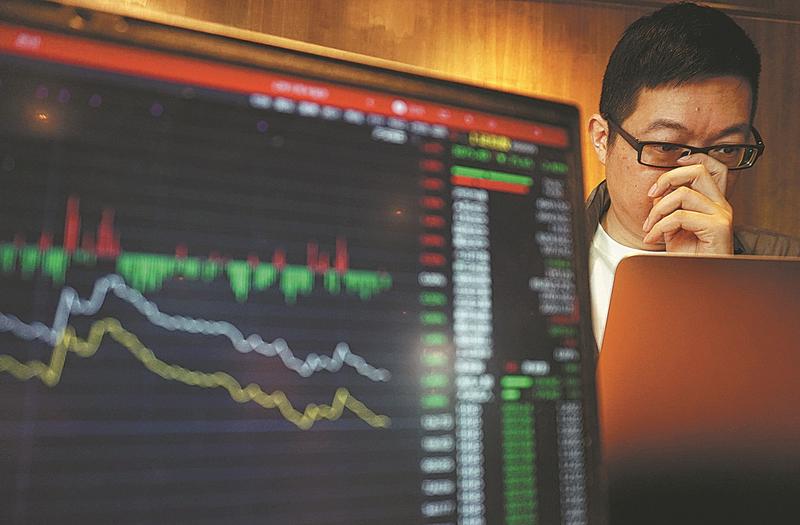Chinese mainland investors to have access to four Hong Kong-listed ETFs
 An investor in Hangzhou, Zhejiang province, checks share prices. (LONG WEI/FOR CHINA DAILY)
An investor in Hangzhou, Zhejiang province, checks share prices. (LONG WEI/FOR CHINA DAILY)
Though short-term fluctuations may be inevitable, the A-share market has demonstrated increasingly noticeable investment value as China's progress in further opening up its capital market continues apace, and markets elsewhere are complicated by rising inflation and tightening credit, said industry experts.
The China Securities Regulatory Commission, together with Hong Kong's Securities and Futures Commission, jointly announced on Tuesday that exchange-traded funds will commence trading on Monday under the stock connect mechanism linking the Shanghai, Shenzhen and Hong Kong bourses.
Chinese mainland investors will have access to four ETFs listed on the Hong Kong bourse, while 83 ETFs listed on the Shanghai and Shenzhen exchanges were made available to international investors trading in Hong Kong.
As estimated by leading domestic asset manager E Fund, up to 600 billion yuan ($90 billion) will be introduced into the A-share market with the latest opening-up move.
Experts from China Securities said that the expansion of product categories included in the connect program will facilitate the two-way opening up of China's capital market. The market will further mature with continued capital flow and the penetration rate of equity ETFs will be elevated, they said.
Dragged down by the sluggish performance of the automobile and wind power equipment sectors, the benchmark Shanghai Composite Index lost 1.4 percent on Wednesday and the Shenzhen Component Index closed 2.2 percent lower. However, total trading value on the Shanghai and Shenzhen bourses topped 1.3 trillion yuan, the biggest intraday trading figure since the end of April.
Analysts from Bohai Securities explained that fluctuations will be more significant in the A-share market when the indexes' uptrend becomes clearer. Going forward, different takes will likely be heard regarding the outlook of different sectors and structural performance will be the major theme. Investors are thus suggested to be more cautious when choosing investment strategies.
The US Federal Reserve's accelerated interest rate hikes will likely affect the pace of capital inflow and set limits on China's monetary policy to some extent. But given the overall relatively low valuations for A shares, the uptrend in capital inflows will remain unchanged.
Mixo Das, Asia equity strategist at JPMorgan, said Chinese stocks are favored mainly because of China's strong economic resilience, the "extremely different" cycle that China is in compared to markets elsewhere and the cheap valuations of Chinese equities.
As for the second-half outlook, Laura Wang, chief China strategist at Morgan Stanley, also suggested investors divert more focus to A shares in their emerging market portfolios. The A-share market has been responding more positively than offshore markets to economic stimulus policies. From a medium to long-term perspective, the A-share market will generate more opportunities in sectors including information technology, high-end manufacturing and environmental protection.
Foreign investor interest has been made clear in their latest moves. Data from the public domain show that three A-share companies, including digital building platform service provider Glodon, have seen their respective foreign ownership derived from qualified foreign institutional investor activity reach the limit of 28 percent as of Monday.
The US stock market was affected on Tuesday by the latest gloomy economic data. The S&P plunged 2 percent and Nasdaq took another 3 percent hit following a soft Conference Board Consumer Confidence Index and a sharp fall in the Richmond Manufacturing Index, hinting at softer economic activity as a result of tighter Fed policy.


